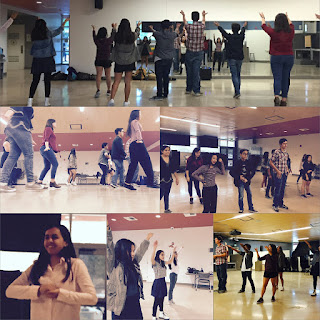(1) Positive Statement
What are you most proud of in your block presentation and/or your senior project? Why?
I think everything went really well. I had to wait 30 minutes to start my presentation but I didn't let that trip me up. I remained calm and still gave my presentation to the best of my ability. I had to cut a couple things short like my hook and activity but it didn't have that big of an impact on my presentation. I really enjoyed my studies this year and I don't regret choosing an art over something more academic. I got to have a ton of experience in the field, experience that I would not have gotten if I had not chose theater. I think the people in my presentation enjoyed it and had some fun and I'm proud to say I entertained them.
(2) Questions to Consider
a. What assessment would you give yourself on your block presentation? Use the component contract to defend that assessment.
AE P AP CR NC
I think I deserve an AE. I covered everything I was suppose to cover in my lesson plan and I did it in a fun and entertaining way.
b. What assessment would you give yourself on your overall senior project? Use the component contract to defend that assessment.
Overall, I would be happy with a P because I completed every assignment on time and did what was asked of my but I feel I deserve an AE because not only had I done the work but I went into great detail in my research. I had well over the required hours for my senior project and took the time to make sure everything about my project was up to date and done.
